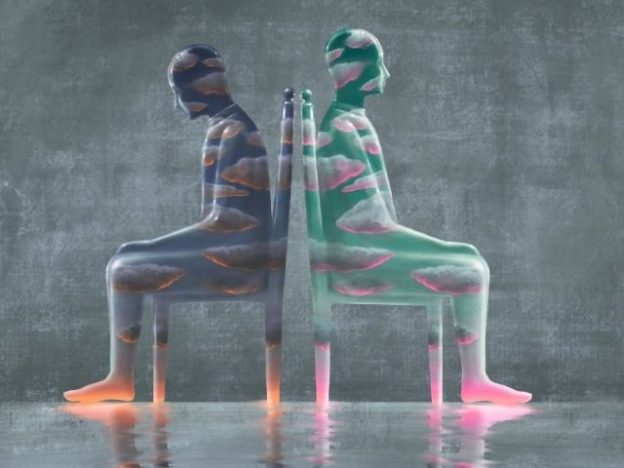As we’ve seen in our recent posts about marijuana-induced psychotic disorder, cannabinoid hyperemesis, and the physical effects of marijuana, it’s possible that recreational marijuana isn’t quite as harmless as we’ve been led to believe. In this post, we’d like to explore some of the literature relating to marijuana and mental health. As professional drug and alcohol counselors who work with young people every day, we see much of this first-hand.
Marijuana is a complex drug. Some people feel happy and relaxed when they smoke marijuana, and others feel anxious and paranoid. Still others develop more and more paranoia or feelings of anxiety in the long-term, leading to mood swings or manic symptoms.
This article is not intended to tell you what you should or shouldn’t do. We simply want you to be informed on some of the possible outcomes of marijuana use so you can make a decision on your own. We hope this information is helpful, as marijuana is decisively the drug most frequently abused by teenagers and young people.
Marijuana and bipolar disorder
Bipolar disorder, formerly called “manic depressive disorder”, is a mental health condition in which an individual has alternating periods of elation and depression. As mentioned above, one of the main effects of marijuana is the feeling of relaxation and happiness it provides under ideal circumstances. So, is there a link between marijuana and bipolar disorder?
There is actually a decent amount of literature on this topic. In particular, this 2015 study performed a systematic review and meta-analysis of six studies covering 2391 patients with bipolar disorder or manic episodes. The results of the study showed an association between cannabis use and “exacerbation of manic symptoms in those previously diagnosed with bipolar disorder.” Additionally, two studies from the analysis suggested that the risk of developing new manic symptoms is approximately three times higher among people with bipolar disorder who remain undiagnosed.
Marijuana and anxiety disorder
There is some debate in the industry and among the public as to whether marijuana causes anxiety disorder. In fact, the literature is conflicting on this topic at times. Some studies point out that anxiety symptoms get triggered by cannabis use, and others show that it can be beneficial in treating symptoms.
This 2014 systematic review noted in the “Adverse Effects” section that anxiety, psychosis, and dysphoria were all associated with higher concentrations of THC.
Marijuana and suicidal ideation, attempt, and self-harm
A 2021 study by the National Institute on Drug Abuse examined over 280,000 adult participants from the National Surveys on Drug Use and Health. They found that past-year cannabis use disorder, daily cannabis use, and nondaily cannabis use were associated with higher instances of past-year suicidal ideation, plans, and attempts across both sexes. They found that the associations were stronger in women.
Another 2021 study on over 204,000 adolescents found an association between adolescent cannabis use and self-harm among youth with mood disorders. The study states that, “Cannabis use disorder is a common comorbidity and risk marker for self-harm, all-cause mortality, and death by unintentional overdose and homicide among youths with mood disorders.”
Studies point out the need for more research in this area. It is unclear whether marijuana use causes suicidal ideation or whether individuals with depression are simply more likely to use marijuana to cope with an underlying mental illness.
Marijuana and Depression
One of the current areas of study is that of marijuana’s potential positive effects on depression. However, there is also evidence to suggest it may make things worse. The Mayo Clinic reports that marijuana users are diagnosed with depression more often than non-marijuana users. However, as stated above, there is a problem of determining causation.
The real trouble is that while marijuana use may provide temporary relief, there is also a good chance it will make symptoms worse. This 2018 study found that users of marijuana experienced stress, anxiety, and depression relief with as little as two puffs of marijuana. However, they noted that baseline symptoms of depression ended up being worse over time. This seems to fall in line with conventional wisdom on drug abuse in general – drugs provide temporary relief at the cost of more pain later.
What’s the Verdict?
From the resources linked above, it would appear that marijuana and mental illness go hand in hand. However, many of the sources repeat the same problem with determining causation. It is as of yet unclear whether marijuana increases risk of anxiety disorders, suicidal ideations, depressive episodes, etc, or whether individuals with mental health issues are simply more likely to use marijuana.
In our view, the question isn’t really about whether or not marijuana can cause mental health problems. The question is, how can we help address mental health issues in individuals so they don’t have to use marijuana to cope?
That seems like a worthwhile approach, while also conveniently side-stepping marijuana’s other inherent risks, and the documented negative effects of marijuana use on brain development in adolescents.





